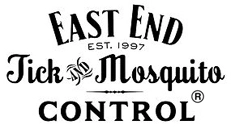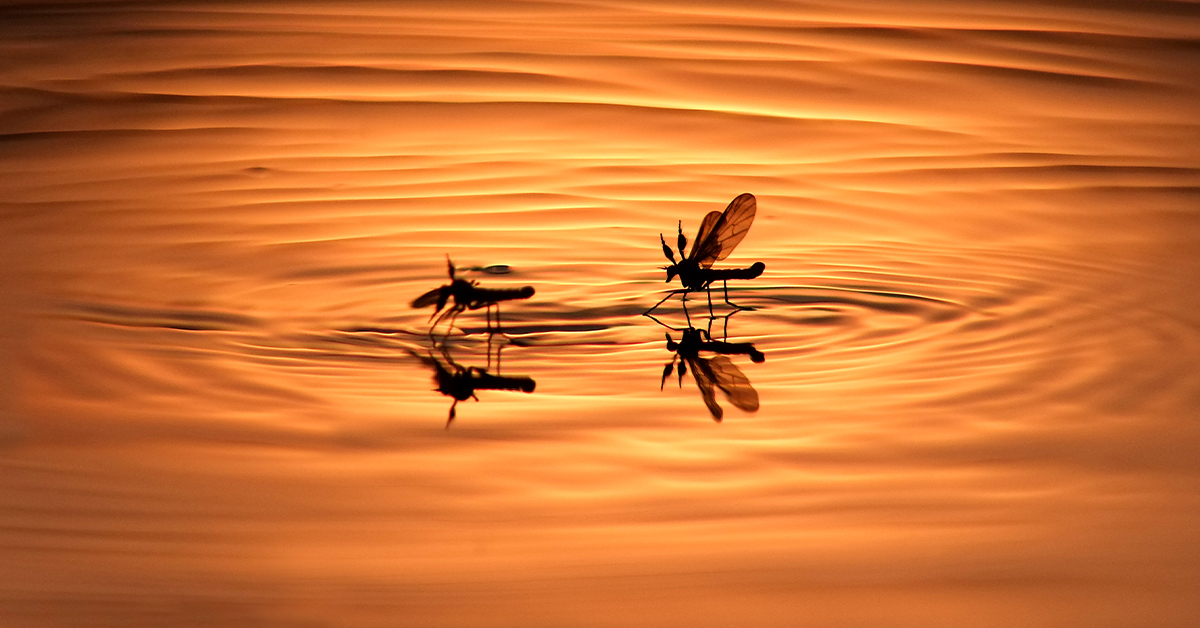Getting rid of mosquitoes isn’t a “one and done” proposition. They need to be treated throughout the warmer months to keep your home and property mosquito-free. Understanding the mosquito lifecycle helps us explain why these annoying (and occasionally dangerous) pests can be a challenge to eradicate.
Mosquitoes go through distinct developmental phases, and different stages require different treatments. Juvenile mosquitoes must be eliminated in the water, while adult mosquitoes need to be treated in the air or on the ground as well.
What is the lifecycle of a mosquito?
The mosquito lifecycle consists of four stages:
- Mosquito eggs are laid in water or near water sources. Eggs may be quite hardy; many are able to survive dry conditions for several months or to lie dormant for even longer. Some mosquito eggs can live through cold winters, hatching as larvae in the spring.
- Larval mosquitoes emerge from the eggs and live in water. They’re also known as “wrigglers” that swim in S-shaped motions as they travel to and from the water’s surface. There, they breathe air and feed on microorganisms. A mosquito larva will molt several times during this stage, as they outgrow and shed several exoskeletons.
- Pupal mosquitoes experience a short resting stage where they neither eat nor leave the water. They are also known as “tumblers” because of their rolling motion toward and away from the water’s surface as they respond to stimuli like movement and light.
- Adult mosquitoes emerge from their pupal skin, rest briefly on the surface of the water, and then fly away to perpetuate the cycle. Males typically emerge first, lingering near the hatching site to mate as soon as the females make an appearance. Because as much as 30 percent of adult mosquitoes die each day, they replenish their populations by mating quickly, with females laying large numbers of eggs.
The length of each life stage depends on the mosquito’s species, the availability of water, the temperature and other weather-related factors, and accessibility of food sources. In general, once eggs hatch it takes about a week for a mosquito to mature.
How Many Days Does a Mosquito Live?
The mosquito lifespan is only six or seven days for males. They do not bite or consume blood meals… and exist only to mate and pollinate. Female mosquitoes are the biters of the species, requiring blood meals to nourish and lay their eggs. Females live an average of six weeks – but some can survive five months or more under the right conditions!
How Long Does a Mosquito Live After it Bites?
There’s a common misconception that mosquitoes die after biting a human or animal. Unfortunately, this isn’t true: female mosquitoes can bite repeatedly and often do so multiple times per day. Unless you smack them after they make you their latest meal, they will not die from biting you… in fact, they may bite you again!
How Many Times Does a Mosquito Bite in its Lifetime?
There’s no limit to the number of times a female mosquito can bite during her lifetime. She will continue to bite and consume blood meals until she is full. Once full, she will rest for several days before laying eggs – which starts the process all over again.
This is why mosquito control is an ongoing endeavor. Mosquitoes reproduce quickly and fighting them requires different techniques for eliminating them at different stages of the mosquito lifecycle.
East End Tick & Mosquito Control® Offers Earth-Friendly Mosquito Solutions
Mosquitoes are more than a summertime annoyance: they also transmit diseases that can cause serious health issues for you, your family, and your pets. East End Tick & Mosquito Control® offers organic, environmentally friendly ways to combat them throughout their lifecycle. If you have mosquitoes (or ticks) on your property, contact us online for a removal estimate, or call us at (631) 287-9700 in Southampton, (631) 324-9700 in East Hampton, or (631) 765-9700 in Southold.


